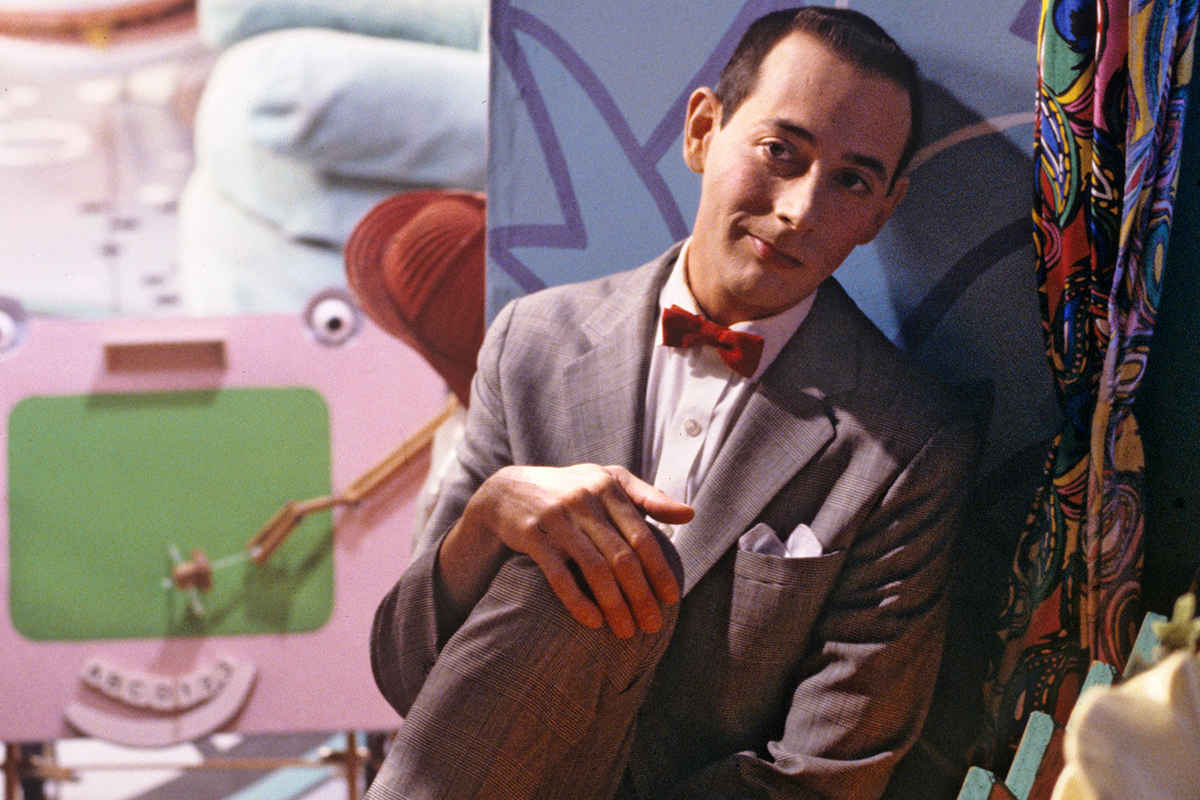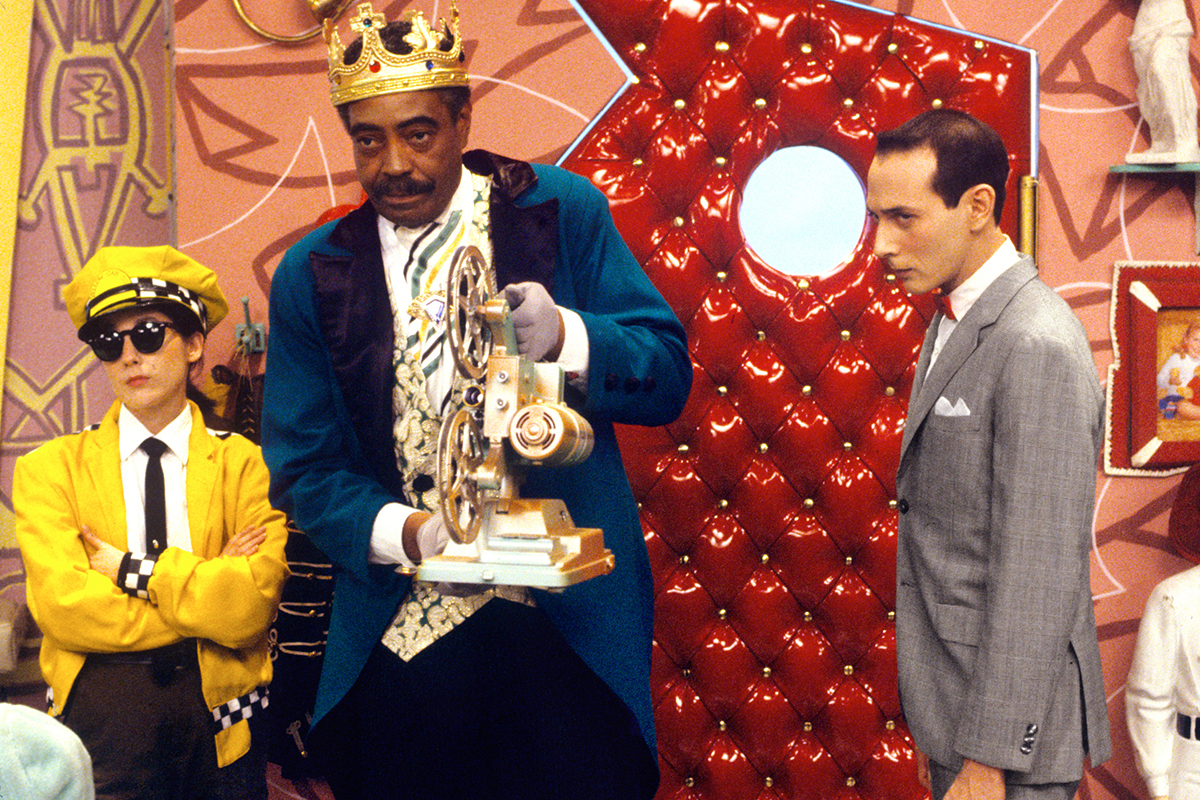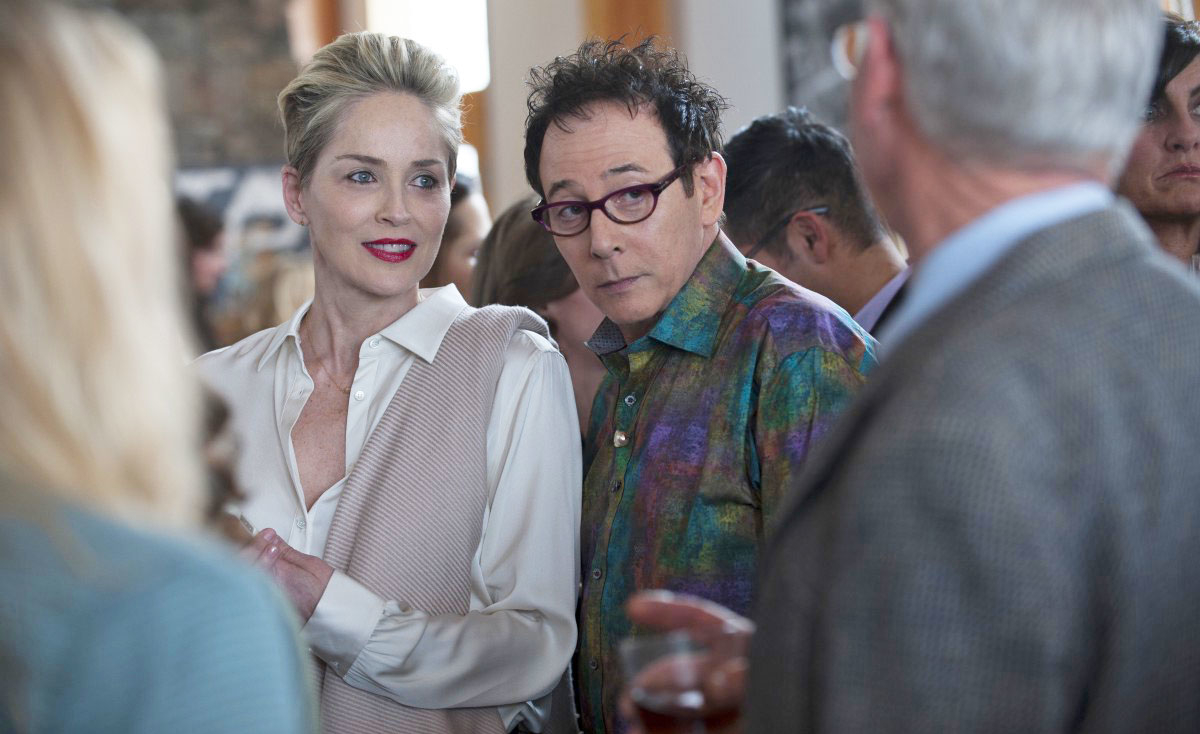Paul Reubens Is Gone, But Pee-wee Herman Will Stay With Me Forever

Paul Reubens died on July 30, 2023 at the age of 70 following a private battle with cancer. He was an incredibly talented actor, comedian, and the brilliant man behind the overgrown child known as Pee-wee Herman. Reubens was an inspiration to comics and filmmakers, including Judd Apatow, Paul Rust, Sarah Sherman, Scott Aukerman, Paul Feig, and countless others. He was also my hero, and a hero to many weirdo kids who grew up in the ’80s and ’90s and watched his hyperactive antics on Pee-wee’s Playhouse. It’s difficult to quantify the immensity of this loss, which is fortunately eclipsed by the indelible impact Reubens had on our culture.
I can’t pinpoint the first time I saw Pee-wee Herman, the wacky persona Reubens created and perfected for the stage in The Pee-wee Herman Show. The show, which co-starred Edie McClurg, Lynne Marie Stewart, and the late Phil Hartman, was such a hit that HBO taped a performance and aired it as a special in 1981. In his signature ensemble—light gray suit, red bowtie, white loafers—Pee-wee looked like a ventriloquist’s dummy brought to life; an uncanny heightening of reality that Reubens masterfully inhabited, making it difficult to separate the creator from his creation.
By the time I was born, in 1985, Pee-wee was an icon. Reubens’ stage persona was hitting the big screen in Pee-wee’s Big Adventure, a more child-friendly version of his famously perverse and petulant character. Directed by Tim Burton, Pee-wee’s Big Adventure took the eponymous protagonist out of Puppetland and sent him on an epic road trip to find his stolen bike. Like the stage show, Reubens’ film was a massive success that introduced Pee-wee to a wider audience and opened the door to new opportunities—namely, more Pee-wee content. Reubens followed Pee-wee’s Big Adventure with a Saturday morning TV series and another movie, Big Top Pee-wee, released in 1988. The circus-themed sequel was a box office disappointment, and struggled to compete with A Fish Called Wanda and Who Framed Roger Rabbit (incidentally, Reubens voiced Roger Rabbit in early test footage for Disney).
Pee-wee’s Playhouse premiered in 1986 on CBS and ran for five seasons as part of the network’s Saturday morning children’s programming. This is undoubtedly how I met Pee-wee for the first time: An outlandish, childlike character who lived in a maximalist dream house complete with talking furniture and puppet friends and drop-ins from eccentric pals like Miss Yvonne (Stewart), Captain Carl (Hartman), Cowboy Curtis (Laurence Fishburne), and the King of Cartoons (Gilbert Lewis and then William H. Marshall)—the latter of whom always brought a short cartoon to play in the middle of the episode. There was Jambi (John Paragon), the genie who appeared as a head inside a box and granted wishes; Chairry, the beautiful chair with enviably long eyelashes; Conky 2000, the robot that delivered each episode’s “secret word”; Globey the globe, Pterri the pterodactyl, Randy the bully, Mr. Window, and so on.
I’m not sure if it was my favorite episode of Pee-wee’s Playhouse, but the one I remember watching most often was season 1’s “The Restaurant.” While driving the King of Cartoons around, Dixie the cab driver’s cab breaks down and she has to hoof it to the Playhouse. Wearing a white t-shirt with the sleeves rolled up and grease smeared on her face, Dixie was my first crush on a girl. The King shows a cartoon (1935’s “Molly Moo-Cow and the Butterflies”), they discover a tiny family of claymation dinosaurs living in the Playhouse wall during a game of putt-putt, and Pee-wee makes finger puppets before we get to the episode’s namesake bit.

Pee-wee pretends to have a restaurant and plays every role—host, waiter, cashier—to obnoxious perfection. Phil Hartman’s salty Captain Carl has the misfortune of being the first (and only) customer, and rolls his eyes as Pee-wee recites a tedious list of options for his steak dinner. (The soup of the day is liver and noodle. The house salad dressing is also liver and noodle.) Unfortunately, the restaurant is all out of steak—and everything else on the menu. So an increasingly agitated Carl settles for a peanut butter and jelly sandwich, but even that becomes a headache. It’s a classic Pee-wee bit, and one that highlights what makes Pee-wee so effective as children’s entertainment. Characters like Captain Carl are the adults in the room, begrudgingly playing along in Pee-wee’s senseless games of make-believe.
Because it aired during the height of home video, we owned several Pee-wee’s Playhouse collections on VHS. My dad was a single parent who took any job that would have him—car salesman, Steak ‘n Shake manager, insurance salesman, hotel … guy—so as a kid I split time between my maternal grandma and the TV. My grandma, financially blessed by a string of wealthy suitors, spoiled me in ways my dad couldn’t, gifting me with Barbie dolls and buying a TV and VCR for my bedroom. Pee-wee’s Playhouse was in regular rotation along with Labyrinth, The Little Mermaid, and Jem and the Holograms. There was almost no oversight when it came to my viewing habits otherwise, and I spent many afternoons and evenings parked in front of the TV, my sensibilities nurtured by a dad who earned his sense of humor from a lifetime of bad luck and worse decisions. We watched a lot of MASH.
Pee-wee was something of a role model at a time when I probably needed one. I was always a weird kid, and I felt like an outsider wherever we went. It didn’t help that we never lived in one place for more than six months—not because my dad was a military guy, but because he had a habit of skipping out on the rent—or that I was the rare five-year-old with strong opinions on both the Child’s Play franchise and the hierarchy of my Barbie dolls. TV and movies helped raise me, and it made sense that I gravitated toward Pee-wee and the dopamine allure of his multimedia Playhouse.
He was the ultimate in silliness, and completely unselfconscious. This was perhaps his most childlike quality; the thing that comes so naturally to kids at play and that we spend the rest of our painfully self-conscious lives trying to recover. He was an architect of controlled chaos who showed reverence for seemingly inconsequential rituals and objects and nothing else—certainly not adult matters. As an anxious latchkey kid with little control over my surroundings and a flair for theatrics rooted in a desperate need for attention, Pee-wee Herman was like a god to me.
Reubens became a reliable anchor in my life. When dad took me to see Batman Returns in 1992, I marveled at Reubens in his straight-faced cameo as the Penguin’s father. As a pre-teen, I adored his weaselly take on Renfield in Buffy the Vampire Slayer (the movie) and his oddball bit parts in the Cheech & Chong movies, both in constant rotation on Comedy Central. As a teen, I extolled the comedic virtues of the Spleen from Mystery Men, a movie that is still wildly underappreciated. And as an adult, I came to more fully admire Reubens as a character actor, from his supporting turn in Blow to his incredible guest spot on 30 Rock and the 2011 revival of The Pee-wee Herman Show.

In recent years, Reubens would show up in projects that confirmed his effect on my sensibilities and his prolific impact on the culture at large: Portlandia, Steven Soderbergh’s Mosaic (in which he has a surprisingly substantial role as Sharon Stone’s friend), What We Do in the Shadows, and Comedy Bang! Bang!—the TV adaptation of Scott Aukerman’s hit podcast is heavily indebted to Pee-wee. Reubens also reprised his iconic character in 2016 for Pee-wee’s Big Holiday, a truly joyful film that has become a bittersweet curtain call.
When you feel like an outsider, you spend an inordinate amount of your precious time longing for community and the catharsis of shared experience. Sometimes you find it in movies and on TV; at their best these mediums are, to paraphrase the late Roger Ebert, empathy machines. Ebert was speaking to the ways in which movies allow us to find shared experience in lives and identities unlike our own, but art also helps us identify and connect with people who are just like us in some essential way.
Unfortunately, community is more often found in the wake of tragedy or loss. In the hours after Reubens’ passing was announced, heartbreakingly accompanied by an apology (as if he had let us down somehow by succumbing to his own humanity), I read countless remembrances from his peers, friends, and fans. They were all devastated by news of his death, and most recalled the profound impact Reubens had on their formative years. Pee-wee’s Playhouse offered an absurdist respite from tumultuous childhoods and gave latchkey kids something they could latch onto, making their (our) little worlds feel less lonely. 30 years later, I found all the friends I never knew I had. If only I had met them sooner. Pee-wee Herman was my guy, and these are my people.
(featured image: John Kisch Archives / Getty Images)
Have a tip we should know? [email protected]
